What the 15 top executives who quit Trump’s business councils said about why they left

Panel members had been resigning since Monday, most directly or indirectly citing Trump’s response to the violence in Charlottesville, Va. over the weekend. (Aug. 17, 2017) (Sign up for our free video newsletter here http://bit.ly/2n6VKPR)
- Share via
After what appeared to be an accelerating exodus of chief executives serving on
He announced his decision in a tweet, saying: “Rather than putting pressure on the businesspeople of the Manufacturing Council & Strategy & Policy Forum, I am ending both. Thank you all!”
The most notable firings and resignations in the Trump administration »
Panel members had been resigning since Monday, most directly or indirectly citing Trump’s response to the violence in Charlottesville, Va. over the weekend.
Here are the CEOs who left and the reasons they gave, as well as who had intended to stay, and others who made no public statements about their intentions before the panels were disbanded Wednesday.
Executives who left after Trump’s comments on Charlottesville violence
CEO of Merck & Co.
Kenneth Frazier
Frazier resigned Monday morning from the manufacturing council, prior to Trump’s scripted statement that “racism is evil.”
What he said:
Less than an hour later, Trump responded with a mocking tweet. “Now that Ken Frazier of Merck Pharma has resigned from President's Manufacturing Council, he will have more time to LOWER RIPOFF DRUG PRICES!”
CEO of Under Armour
Kevin Plank
Plank resigned Monday from the manufacturing council.
What he said:
CEO of Intel
Brian Krzanich
Krzanich announced his resignation from the manufacturing council in a blog post Monday.
What he said:
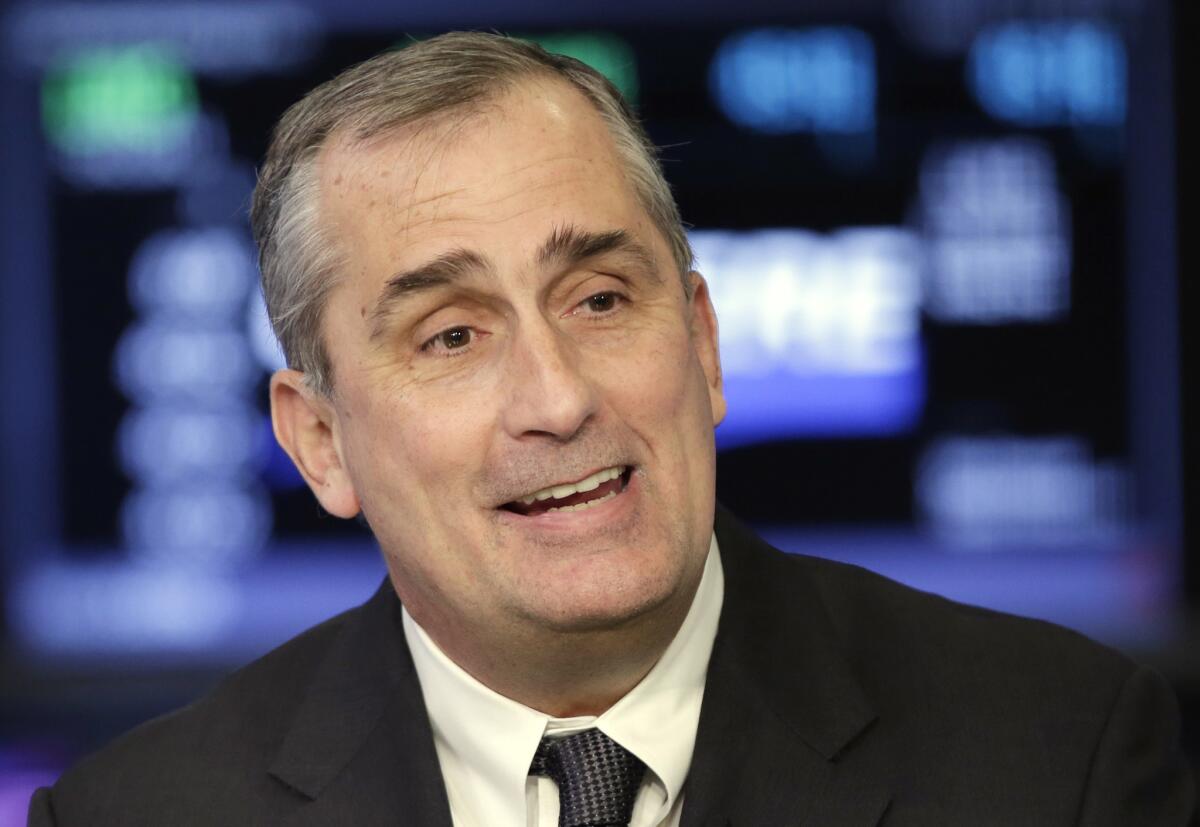
“Earlier today, I tendered my resignation from the American Manufacturing Council. I resigned to call attention to the serious harm our divided political climate is causing to critical issues, including the serious need to address the decline of American manufacturing. Politics and political agendas have sidelined the important mission of rebuilding America’s manufacturing base.
I have already made clear my abhorrence at the recent hate-spawned violence in Charlottesville, and earlier today I called on all leaders to condemn the white supremacists and their ilk who marched and committed violence. I resigned because I want to make progress, while many in Washington seem more concerned with attacking anyone who disagrees with them. We should honor — not attack — those who have stood up for equality and other cherished American values. I hope this will change, and I remain willing to serve when it does.
I am not a politician. I am an engineer who has spent most of his career working in factories that manufacture the world’s most advanced devices. Yet, it is clear even to me that nearly every issue is now politicized to the point where significant progress is impossible. Promoting American manufacturing should not be a political issue.
My request — my plea — to everyone involved in our political system is this: set scoring political points aside and focus on what is best for the nation as a whole. The current environment must change, or else our nation will become a shadow of what it once was and what it still can and should be.”
President of the Alliance for American Manufacturing
Scott Paul
Paul resigned Tuesday from the manufacturing panel.
What he said:
AFL-CIO
Richard Trumka, president, and Thea Lee, deputy chief of staff
Trumka and Lee quit the manufacturing panel Tuesday.
What they said:
CEO of 3M
Inge Thulin
Thulin quit the manufacturing panel Wednesday, just before Trump announced that he was disbanding it.
What he said:
CEO of Campbell Soup
Denise Morrison
Morrison announced that she had left the manufacturing council Wednesday, the same day it was disbanded.
What she said:
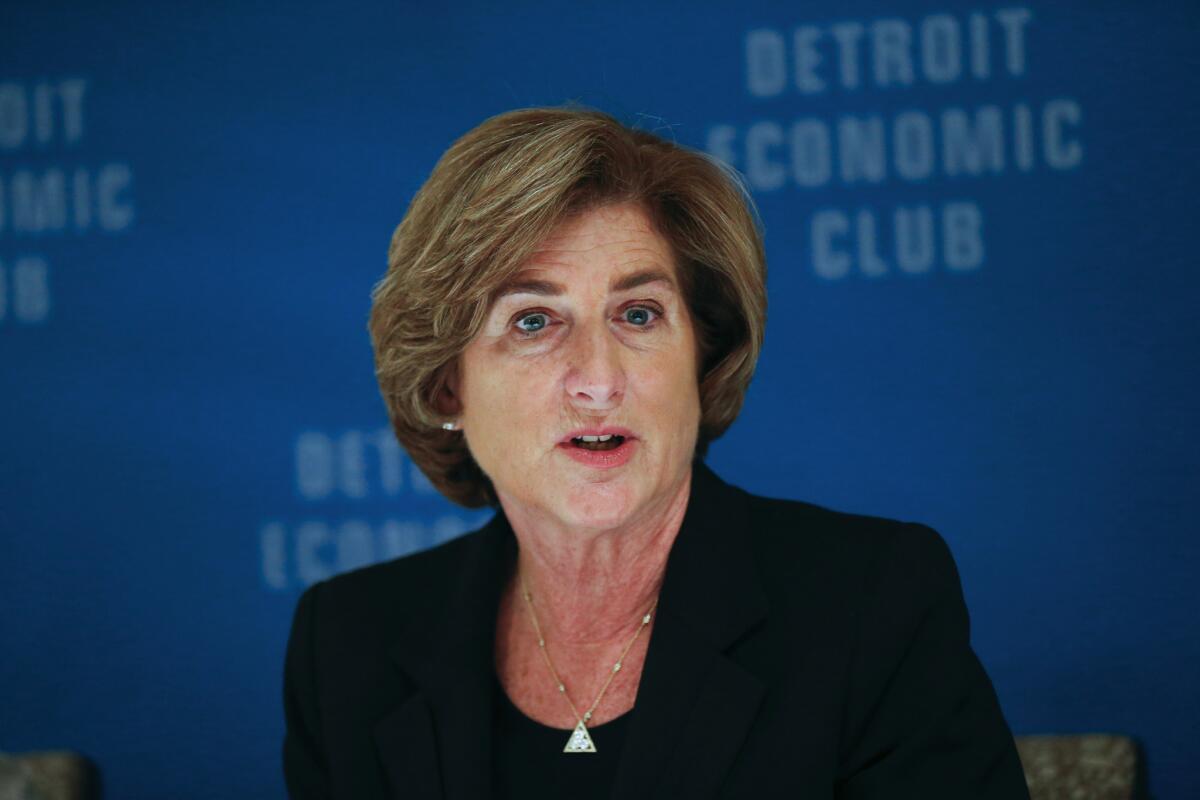
“Racism and murder are unequivocally reprehensible and are not morally equivalent to anything else that happened in Charlottesville. I believe the President should have been — and still needs to be unambiguous on that point.
Following yesterday’s remarks from the President, I cannot remain on the Manufacturing Jobs Initiative. I will continue to support all efforts to spur economic growth and advocate for the values that have always made America great.”
Chairman of General Electric
Jeff Immelt
Immelt had said previously that he would remain on the manufacturing council, but departed on Wednesday.
What he said:
CEOs who quit after Trump disbanded the councils
CEO of Johnson & Johnson
Alex Gorsky
Gorsky announced his resignation from the manufacturing council Wednesday, after Trump disbanded his advisory councils.
What he said:
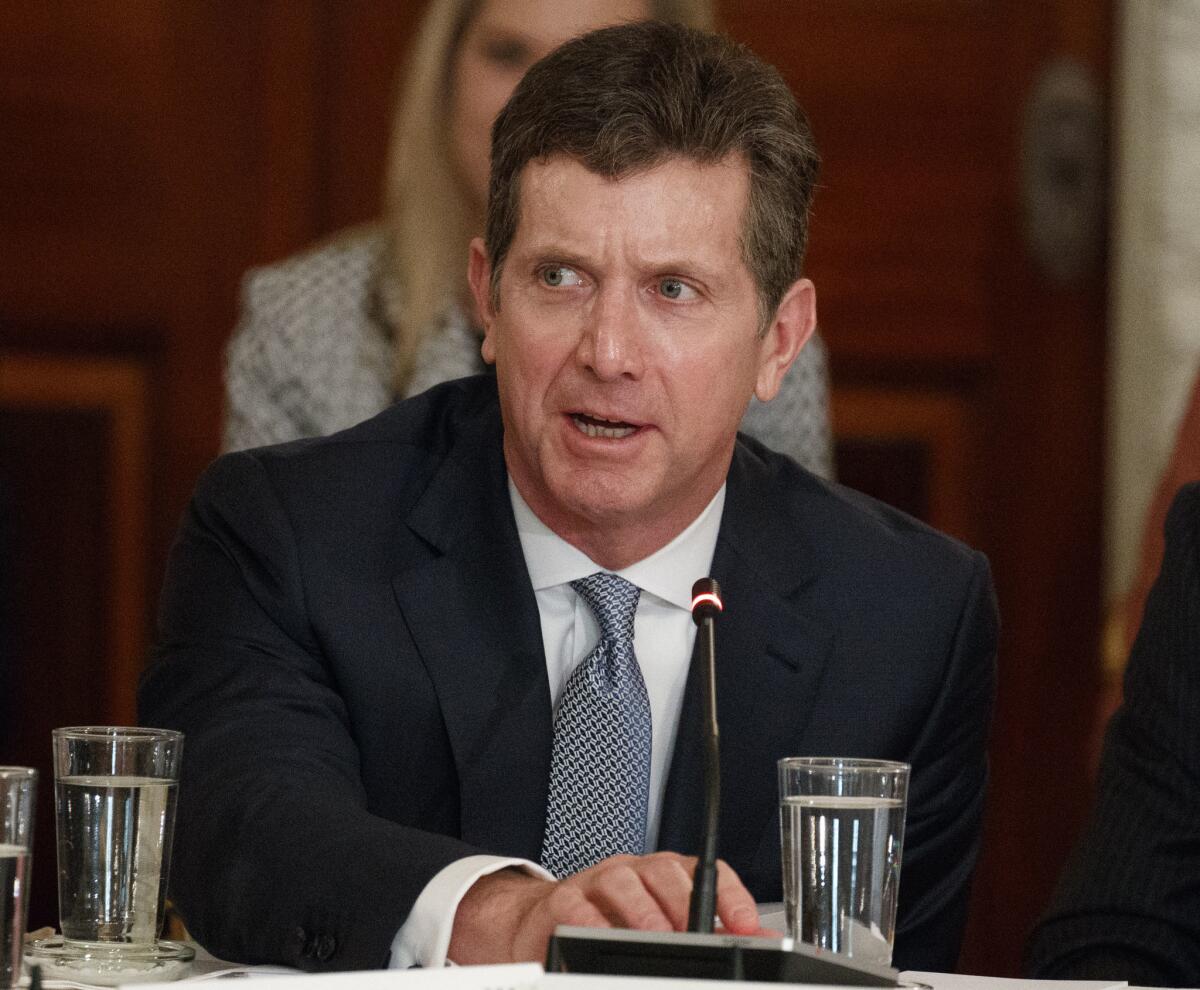
“Johnson & Johnson has a responsibility to remain engaged as important policy decisions are made. That hasn’t changed. The President’s most recent statements equating those who are motivated by race-based hate with those who stand up against hatred is unacceptable and has changed our decision to participate in the White House Manufacturing Advisory Council.
“We will continue to support, advocate and champion policies and programs that make this country and the world healthier, stronger and more united.”
CEO of JP Morgan Chase
Jamie Dimon
Dimon released a statement Wednesday saying that the members of the business advisory panel had agreed to disband.
What he said, in part:
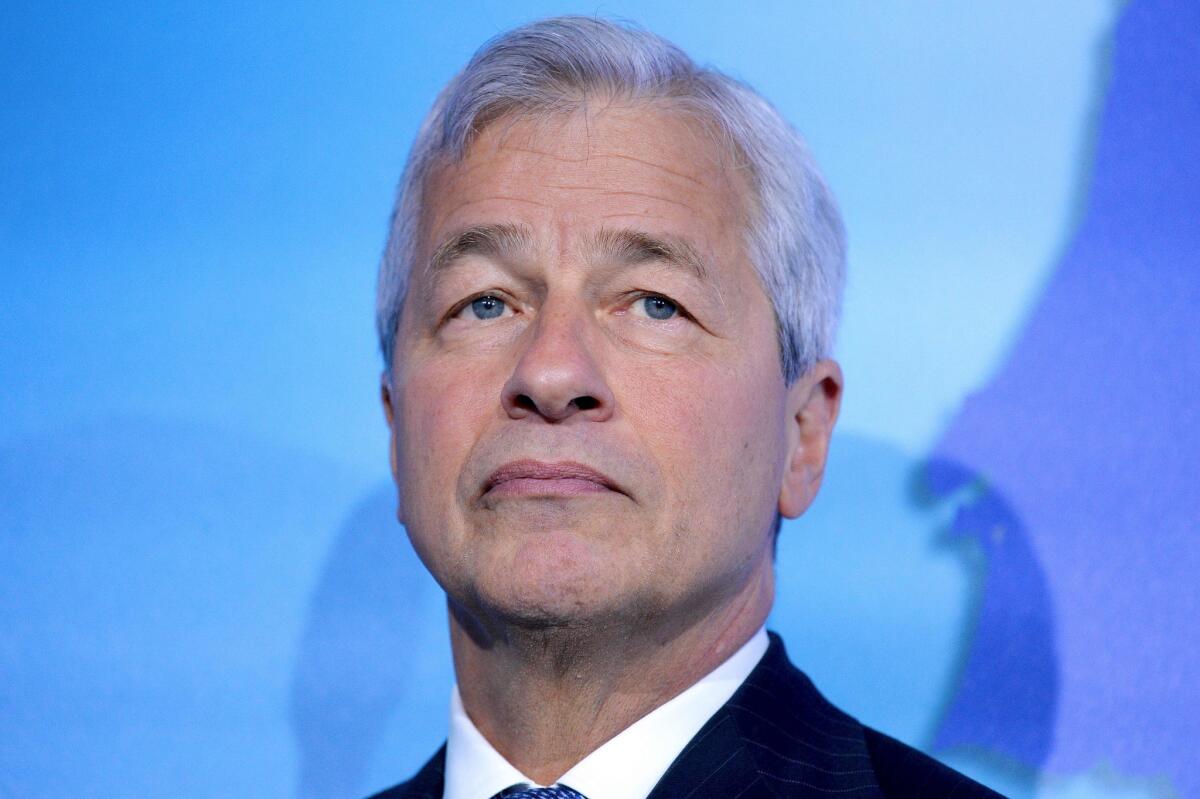
“I strongly disagree with President Trump's reaction to the events that took place in Charlottesville over the past several days. Racism, intolerance and violence are always wrong. The equal treatment of all people is one of our nation’s bedrock principles. There is no room for equivocation here: the evil on display by these perpetrators of hate should be condemned and has no place in a country that draws strength from our diversity and humanity.
“As a company and for all business in general, it is critical that we help develop rational, intelligent policies to help expand opportunities for all of our citizens. I know that times are tough for many. The lack of economic growth and opportunity has led to deep and understandable frustration among so many Americans. But fanning divisiveness is not the answer. Constructive economic and regulatory policies are not enough and will not matter if we do not address the divisions in our country. It is a leader’s role, in business or government, to bring people together, not tear them apart.”
CEO of BlackRock
Larry Fink
Fink announced his resignation from the business advisory panel on Wednesday.
What he said:
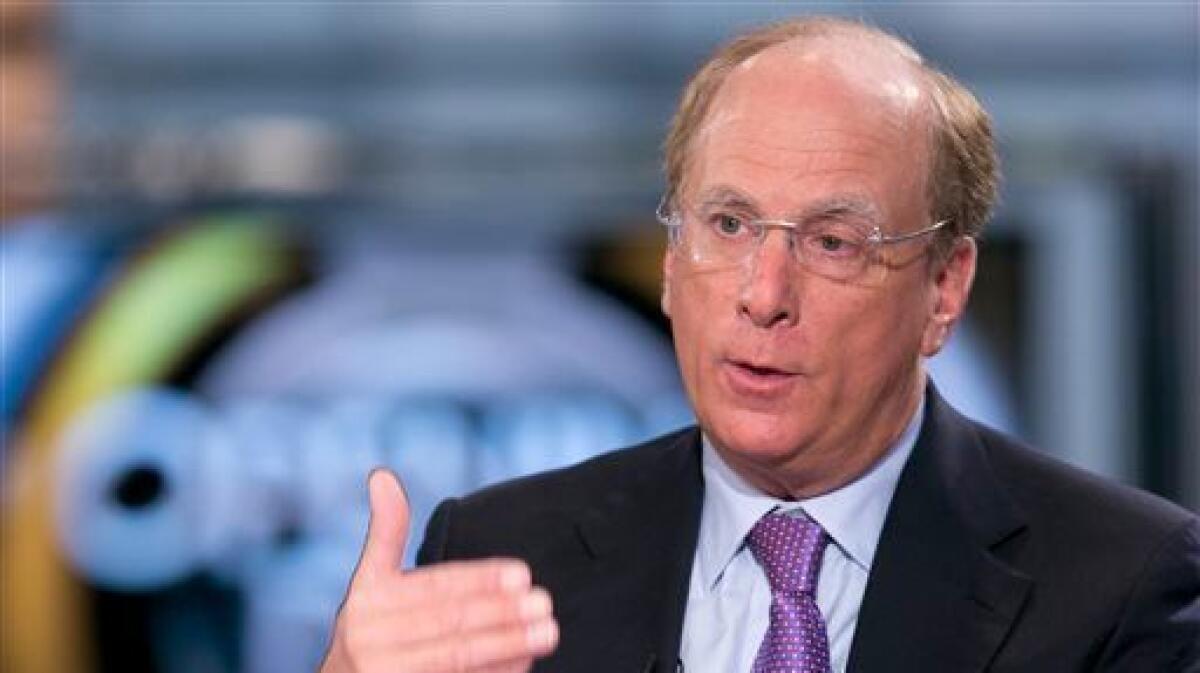
“Late last year, I joined President Trump’s Strategic and Policy Forum because I believe we need to advance policies that can spur economic growth and improve life for all Americans. Engaging constructively with governments is central to advancing BlackRock’s mission, and, in the United States, we desperately need to find common ground on which Americans of different views and from different parties can come together to move the nation forward.
“While I have disagreed with the President in certain instances this year, I continued to participate in the Forum because I believed it was important to have a voice at the table for investors, including our clients. Unfortunately, after the last few days, I concluded that I could no longer in good conscience participate in the Forum.
“The events that occurred in Charlottesville, as I said on Monday, are nothing short of domestic terrorism. Such racism and bigotry must not just be condemned, but must be condemned unequivocally. The diversity of America works because leaders from all walks of life have always been willing to step forward and reject intolerance without equivocation.
“In the last 24 hours, I informed our clients on the Forum as well as the Forum’s chairman of my decision to resign. I also made clear that while I won’t be participating in the Forum, BlackRock will continue to engage on issues of public policy with governments at all levels and around the world. For the U.S. economy, successfully enacting tax reform and rebuilding our infrastructure are of paramount importance.
“BlackRock will continue to contribute to the debate on these and other important issues, but we will do so in ways that are consistent with our culture and values.”
CEOs who left before Charlottesville controversy
CEO of Tesla
Elon Musk
Musk left Trump’s business and manufacturing panels in June, when the president announced that the U.S. would leave the Paris climate agreement.
CEO of Disney
Robert Iger
Hours after Musk pulled out of the business advisory panel June 1, Iger said he was leaving that council “as a matter of principle.”
Former CEO of Uber
Travis Kalanick
Kalanick left a White House economic advisory panel in February.
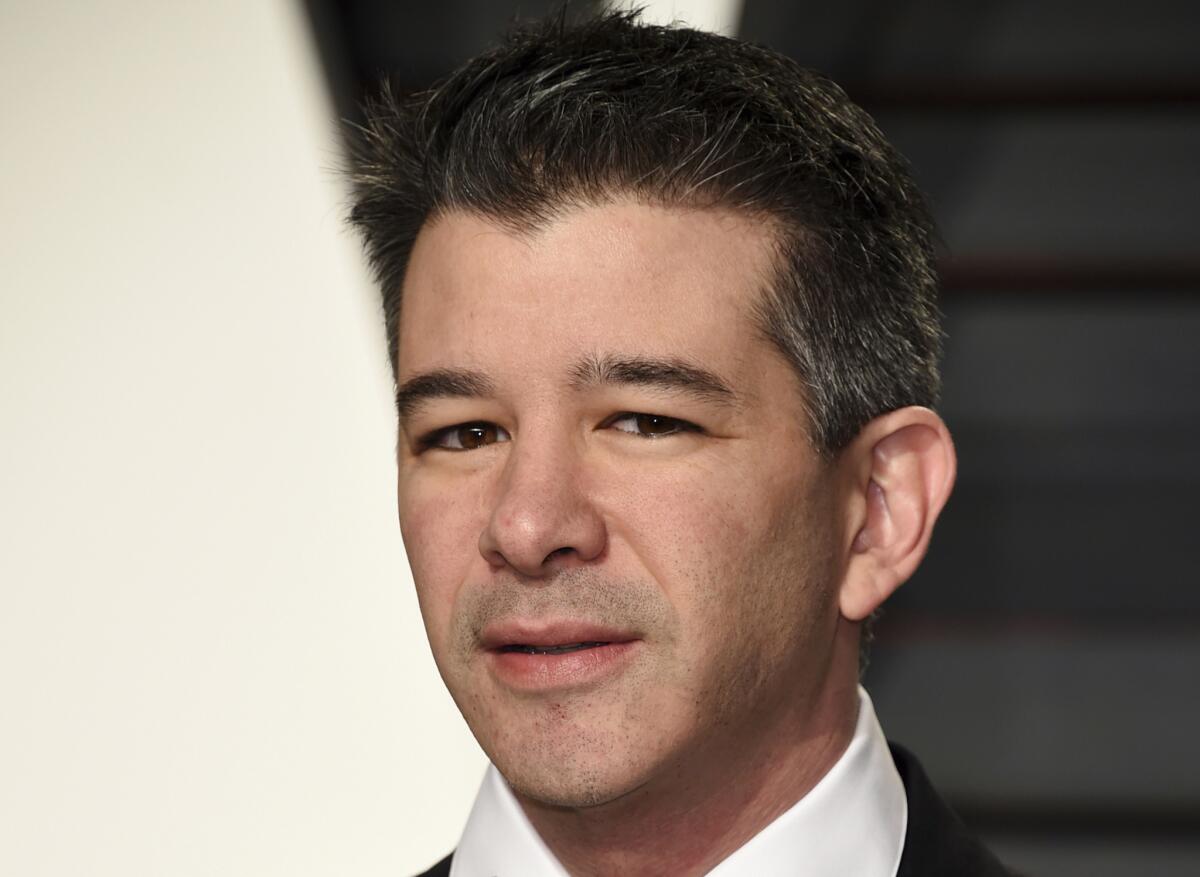
Kalanick faced mounting pressure from employees and customers to leave the council, especially after Trump signed an executive order barring travelers and refugees from majority-Muslim countries from entering the United States. (The ban was later scaled back and won Supreme Court approval.)
“Earlier today, I spoke briefly with the president about the immigration executive order and its issues for our community,” Kalanick wrote in a memo obtained by the Los Angeles Times. “I also let him know that I would not be able to participate on his economic council. Joining the group was not meant to be an endorsement of the president or his agenda, but unfortunately, it has been misinterpreted to be exactly that.”
The criticism of Kalanick came to a head when Uber customers began deleting the ride-hailing app from their phones in protest of Kalanick’s cooperation with the Trump administration, prompting the hashtag #DeleteUber to trend on Twitter.
Kalanick was later forced out as CEO.
Stayed until the panels dissolved
Mary Barra , CEO of General Motors (business advisory panel)- Toby Cosgrove, CEO of the
Cleveland Clinic (business advisory panel) - Doug McMillon, CEO of Wal-Mart (business advisory panel). McMillon released a statement admonishing the president.
- Dennis Muilenberg, CEO of
Boeing (manufacturing panel) - Stephen Schwarzman, CEO of Blackstone Group (business advisory panel)
- Jack Welch, former CEO of General Electric (business advisory panel)
- Michael Dell, CEO of Dell (manufacturing panel)
- Rich Kyle, CEO of Timken (manufacturing panel)
- Michael Polk, CEO of Newell Brands (manufacturing panel)
- Mark Sutton, CEO of International Paper (manufacturing panel)
Wendell Weeks , CEO of Corning (manufacturing panel)
Made no specific comments
- Rich Lesser, CEO of BCG (Boston Consulting Group)
Jim McNerney , former CEO of BoeingIndra Nooyi , CEO of Pepsico- Adebayo Ogunlesi, chairman of Global Infrastructure Partners
- Virginia Rometty, CEO of IBM
- Kevin Walsh, visiting fellow at Stanford University’s Hoover Institution
- Mark Weinberger, CEO of EY (Ernst & Young)
- Daniel Yergin, vice chairman of IHS Markit
- Andrew Liveris, CEO of Dow Chemical
- John Ferriola, CEO of Nucor Corp.
- Greg Hayes, CEO of United Technologies
- Marillyn Hewson, CEO of
Lockheed Martin - Jim Kamsickas, CEO of Dana Inc.
Previously retired from company and left manufacturing council
- Mark Fields, former CEO of Ford Motor Co.
- Klaus Kleinfeld, former CEO of Arconic
- Mario Longhi, former CEO of U.S. Steel
Doug Oberhelman , former CEO of Caterpillar
The most notable firings and resignations in the Trump administration »
ALSO
Corporate America voices its strongest repudiation yet of Trump as councils disband
Will a trade fight with Asia sabotage the U.S. solar industry? That may be up to Trump



